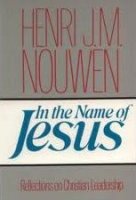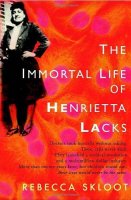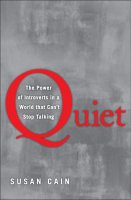Edy's Double Fudge Brownie Ice Cream, Butterfingers, and their Swiss pedigree notwithstanding, Nestlé is not my favorite company. They drain Florida's aquifer and sell our water out of state, while we suffer water restrictions and salt-water intrusion problems. (Not that they're the only ones.) They aggressively promote their infant formula in impoverished countries, where babies especially need the benefits of breast milk, and where improperly-prepared formula can be deadly. They market sugar and chocolate to toddlers:
(I found this on the grocery shelves on a visit to Switzerland. If you click on the picture to enlarge it, you'll see it is intended for children ages one to three.)
I guess if they're criticized for selling baby formula to the poor, we shouldn't complain if they turn their marketing skills toward the rich. Still, Nestlé's attempt to bring their fabulously successful and oh-so-trendy capsule coffee system to the baby bottle set strikes me as over the top. As my Swiss informant explained: Capsule coffee machines are all the rage here and if you have a Nestlé machine you're in the top of coolness. Now you can get one for your baby, only it serves formula not coffee.
Yes! It's safe, it's foolproof, it's BabyNes!
BabyNes is the world’s first comprehensive nutrition system for infants and toddlers, and is based on Nestlé’s latest scientific achievements in baby nutrition and systems technology. With BabyNes, Nestlé builds on its unmatched expertise in baby nutrition gained over 145 years since the invention of Farine Lactée by Henri Nestlé.
Ahem. The world's first comprehensive nutrition system for infants and toddlers is actually as old as mammals....
BabyNes offers single-serve formulas for infants and young children up to the age of three years. The composition of the six consecutive formulas meets the evolving nutritional needs in the first three years of life: four formulas in the first year, and one formula for each of the following two years. The customised composition of these products is tailored to suit the growth pattern in early life and the baby’s changing nutritional needs, while taking into account the steady introduction of solid food into the infant’s diet.
The single-serve portions are sealed in capsules, used in the proprietary BabyNes machine, which recognises each capsule and prepares the bottle with precisely the right dosage and temperature, at the push of a button, in less than one minute. The BabyNes machine combines state-of-the-art technology with the utmost safety and convenience, and ensures a hygienic, quick and easy bottle preparation.
Best of all, it's supercool! (Even cooler because the demonstration is in French.)
Permalink | Read 4918 times | Comments (11)
Category Children & Family Issues: [first] [previous] [next] [newest]
There are worse things than running over a dead rat with your lawnmower.
But on the whole, I'd rather not, thank you.
At least I think it was a rat. It's kind of hard to tell now.
No, I'm not posting pictures.
Permalink | Read 2443 times | Comments (0)
Category Everyday Life: [first] [previous] [next] [newest]
Q. How did you spend your 60th birthday?
A1. Mostly on the road.
A2. With all of my children and granchildren, plus my brother, some nephews, a bunch of in-laws, and a nice assortment of other relatives and friends!
Both answers are true, and if I had to endure five states' worth of A1, it was worth it to achieve A2! (Good thing we were in New England, not the Midwest.)
The Cleverest Birthday Card Award goes to my brother (and his family, but knowing my brother, I'm sure it was his idea):
Thanks to everyone who made it a memorable day!
Permalink | Read 2272 times | Comments (1)
Category Everyday Life: [first] [previous] [next] [newest]
I know that most of you are waiting for more important posts, with vacation pictures and grandchild adventures, but tonight you get the Blue Light Blues. I saw this article in the Hartford Courant while on vacation; the link here is to Harvard Health Publications, but it's the same text.
In case you needed one more thing to worry about, all that after-hours screen time is exposing you to excessive blue light. And blue light at night is bad.
At night, light throws the body's biological clock—the circadian rhythm—out of whack. Sleep suffers. Worse, research shows that it may contribute to the causation of cancer, diabetes, heart disease, and obesity.
But not all colors of light have the same effect. Blue wavelengths—which are beneficial during daylight hours because they boost attention, reaction times, and mood—seem to be the most disruptive at night. And the proliferation of electronics with screens, as well as energy-efficient lighting, is increasing our exposure to blue wavelengths, especially after sundown.
Did you catch the bit about energy-efficient lighting? Those highly-touted compact fluorescent bulbs and LED lights put out more blue light than incandescent bulbs. Being green can make you blue, too.
The article offers some suggestions for reducing blue light exposure:
- Use dim red lights for night lights. Red light has the least power to shift circadian rhythm and suppress melatonin.
- Avoid looking at bright screens beginning two to three hours before bed.
- If you work a night shift or use a lot of electronic devices at night, consider wearing blue-blocking glasses.
- Expose yourself to lots of bright light during the day, which will boost your ability to sleep at night, as well as your mood and alertness during daylight.
According to #1, I need to stay up for at least another two hours, but that's not going to happen. I'll try to do better tomorrow. For now, I'll go to bed feeling happy that my bedside clock has a red display.
"[W]hen I began this article I was dead set against homeschooling, as are many certified teachers. But, after doing research, I’m not so sure."
It's not the most ringing of endorsements, but it represents a big step, and Susan Schaefer's Homeschooling Goes Mainstream and Here's Why is postive about homeschooling from beginning to end.
I learned that homeschooling is way more organized than I thought and very in vogue at the moment. In 1980, home schooling was illegal in 30 states. Now, it is legal in all 50 states with about 1.5-2 million children being homeschooled in the U.S., roughly 3 percent of school-age children nationwide.
This reminder of how far we've come gives me hope for the cantons of Switzerland where homeschooling is still illegal. I pray they'll make progress a bit faster than we did, however—Joseph gets nearer to compulsory school age with every passing hour.
[T]he stigma associated with homeschooling is gone as it becomes more and more mainstream.
I thought the stigma was ancient history, although maybe that's because I rarely pay much attention to such things. Our kids would know better.
The image of homeschooled children spending their days sitting at the kitchen table are long gone. Today’s homeschooled are out and about with many museums offering programs to homeschoolers as well as other hands-on activities, such as nature centers. There are endless websites dedicated to non-traditional learning opportunities in addition to websites offering support and resources for homeschooling families.
Hmmm. Our kitchen table was dedicated to eating, not schooling, though I can't deny that a lot of education happened during dinner. We certainly did our share of out-and-about! All those "endless websites" would have been nice, though. Hard as it is to believe, children, this was Before The Internet, though we did have the Education Round Table on GEnie.
According to the Homeschool Progress Report 2009: Academic Achievement and Demographics, homeschoolers, on average, scored 37 percentile points above their public school counterparts on standardized achievement tests.
Nothing new here, but it is nice to know that the advantage still holds as the homeschooling numbers have grown from "the few, the proud."
[H]omeschooled kids are far from isolated from peers, do well in social situations, and are more likely to be involved in their community. The education level of the parents had little effect on the success of their children, as did state regulations, gender of the student, or how much parents spent on education.
Again, nothing new. In fact, there is little new in the article, but it was still encouraging to read. If there's one thing I've learned in my more-than-half-century of life, it's that what's well known needs to be said again and again to each new generation, each new situation, each new demographic, or it is in danger of being lost.
What caught my eye about this article, above and beyond the homeschooling connection, was the paper in which it appeared: The Middletown (Connecticut) Patch. I thought the format and logo looked familiar, and indeed it was the obviously-related East Haddam-Killingworth Patch of a year ago April that mentioned my research on Phoebe's Quilt. So it must be an important journal, right?

In the Name of Jesus by Henri J. M. Nouwen (Crossroad Publishing 1996; original copyright 1989)
Spiritual Formation: Following the Movements of the Spirit by Henri J. M. Nouwen, with Michael J. Christensen and Rebecca J. Laird (HarperOne, 2010)
I've dabbled in Henri Nouwen's writings for years, always finding value in some of his insights, but never finding myself in a position to appreciate, or even to understand, his work over all. Wherever he is, I'm never "quite there yet." These books evoked the same reaction.
Of the two, In the Name of Jesus I found most comprehensible. Spiritual Formation, a compilation of Nouwen's thoughts, has rough edges from the cut-and-paste effort. It's meant to be a seamless whole, but I encountered too many unacknowledged contradictions to make sense of it all.
Here are a few quotations, all from In the Name of Jesus, which deals with spiritual leadership.
Dealing with burning issues without being rooted in a deep personal relationship with God easily leads to divisiveness because, before we know it, our sense of self is caught up in our opinion about a given subject. But when we are securely rooted in personal intimacy with the source of life, it will be possible to remain flexible without being relativistic, convinced without being rigid, willing to confront without being offensive, gentle and forgiving without being soft, and true witnesses without being manipulative.
When you look at today's Church, it is easy to see the prevalence of individualism among ministers and priests. Not too many of us have a vast repertoire of skills to be proud of, but most of us still feel that, if we have anything at all to show, it is something we have to do solo. You could say that many of us feel like failed tightrope walkers who discovered that we did not have the power to draw thousands of people, that we could not make many conversions, that we did not have the talents to create beautiful liturgies, that we were not as popular with the youth, the young adults, or the elderly as we had hoped, and that we were not as able to respond to the needs of our people as we had expected. But most of us still feel that, ideally, we should have been able to do it all and do it successfully. Stardom and individual heroism, which are such obvious aspects of our competitive society, are not at all alien to the Church. There too the dominant image is that of the self-made man or woman who can do it all alone.
Somehow we have come to believe that good leadership requires a safe distance from those we are called to lead. Medicine, psychiatry, and social work all offer us models in which "service" takes place in a one-way direction. Someone serves, someone else is being served, and be sure not to mix up the roles! But how can anyone lay down his life for those with whom he is not even allowed to enter into a deep personal relationship? Laying down your life means making your own faith and doubt, hope and despair, joy and sadness, courage and fear available to others as ways of getting in touch with the Lord of life.
The temptation to consider power an apt instrument for the proclamation of the Gospel is the greatest of all. ... Every time we see a major crisis in the history of the Church, such as the Great Schism of the eleventh century, the Reformation of the sixteenth century, or the immense secularization of the twentieth century, we always see that a major cause of rupture is the power exercised by those who claim to be followers of the poor and powerless Jesus.
What makes the temptation of power so seemingly irresistible? Maybe it is that power offers an easy substitute for the hard task of love. It seems easier to be God than to love God, easier to control people than to love people, easier to own life than to love life. Jesus asks, "Do you love me?" We ask, "Can we sit at your right hand and your left hand in you Kingdom?" (Matthew 20:21).
[Christian leadership in the future] is not a leadership of power and control, but a leadership of powerlessness and humility in which the suffering servant of God, Jesus Christ, is made manifest. I, obviously, am not speaking about a psychologically weak leadership in which the Christian leader is simply the passive victim of the manipulations of his milieu. No, I am speaking of a leadership in which power is constantly abandoned in favor of love. It is a true spiritual leadership. Powerlessness and humility in the spiritual life do not refer to people who have no spine and who let everyone else make decisions for them. They refer to people who are so deeply in love with Jesus that they are ready to follow him wherever he guides them, always trusting that, with him, they will find life and find it abundantly.
They say a pound a week is a pretty good rate of weight loss, but today I lost a pound in six minutes.
Unfortunately, I've gained it all back by now, since the people who took my blood encouraged me to drink a lot tonight.
Did I say six minutes? That's all it took from needle-in to needle-out. However, from home to home was over two hours. At the first bloodmobile I tried, the computer went down. After waiting 45 minutes or so, with no progress in sight, I took my paperwork and drove to another site.
It seems there's always something they don't like about my paperwork, and this time it was my travel—never mind that at my last donation, just two months ago, this had posed no difficulty at all. (At that time, it was something entirely different.) "Exactly when, and for how many days, were you in Switzerland, Italy, Germany, and France in the past three years?" If this had been one grand European vacation, I might have had the dates readily to hand. But it was a struggle to remember, since—I'm amazed to say—I've made the trip a lot. Fortunately, the lady with veto power over my ability to donate blood lightened up once she concluded that none of those countries is, or ever has been, in the United Kingdom....
Having read The Immortal Life of Henrietta Lacks, I was acutely aware that the consent form I signed gives the blood bank pretty much unlimited rights to use my blood as they see fit, which is somewhat unsettling, I will admit.
I hadn't intended the adventure to take up most of the afternoon, but the time actually passed rather quickly, as I had brought with me Made to Stick, by the authors of Switch. Guilt-free reading time, a bottle of water, a movie ticket, and two chocolate chip cookies—and all it cost was two hours and a pint of blood. Plus I may save someone's life, which isn't a bad deal, either.
 The Immortal Life of Henrietta Lacks by Rebecca Skloot (Broadway Paperbacks, 2011)
The Immortal Life of Henrietta Lacks by Rebecca Skloot (Broadway Paperbacks, 2011)
I was a kid who'd failed freshman year at the regular public high school because she never showed up. I'd transferred to an alternative school that offered dream studies instead of biology, so I was taking [a community college biology class] for high-school credit, which meant that I was sitting in a college lecture hall at sixteen with words like mitosis and kinase inhibitors flying around. I was completely lost.
But it was in that biology class that Rebecca Skloot first heard the name: Henrietta Lacks.
Henrietta died in 1951 from a vicious case of cervical cancer. ... But before she died, a surgeon took samples of her tumor and put them in a petri dish. Scientists had been striving to keep human cells alive in culture for decades, but they all eventually died. Henrietta's were different: they reproduced an entire generation every twenty-four hours, and they never stopped. They became the first immortal human cells ever grown in a laboratory.
By the mid-1970's, when I was working in the University of Rochester's Analytical Cytology Laboratory, the HeLa cell line, as it was called, had been a standard research tool for over 20 years.
[The] cells were part of research into the genes that cause cancer and those that suppress it; they helped develop drugs for treating herpes, leukemia, influenza, hemophilia, and Parkinson's disease; and they'd been used to study lactose digestion, sexually transmitted diseases, appendicitis, human longevity, mosquito mating, and the negative cellular effects of working in sewers. ... Like guinea pigs and mice, Henrietta's cells have become the standard laboratory workhorse.
"HeLa cells were one of the most important things that happened to medicine in the last hundred years," Skloot's professor told her.
What he couldn't tell her, however, was anything at all about the woman behind the cells, Henrietta Lacks herself. The quest for that information would consume much of her life, culminating in this book.
Although The Immortal Life of Henrietta Lacks has special interest for me because of my background in cervical cancer research, such inside information is hardly necessary for finding the book very difficult to put down. Skloot weaves together the story of Henrietta's famous and ubiquitous tumor cells and that of her short and difficult life in such a way that neither the science nor the sorrow becomes overwhelming. Henrietta's cells, holding an honored and essential place in modern biomedical research, contrast sharply with Henrietta's family, which could be the poster child for the poor and marginalized in our country. Reading about their lives in Clover, Virginia confirmed my conclusion that the smartest thing my great-grandparents did was to flee their own hometown on the other side of the Appalachians. Without a doubt, it was harder on Henrietta's family because they were black, but poverty, inbreeding, and, shall we say, non-traditional morals take their toll without regard to race.
The book leaves one with many questions, from medical ethics ("Will our descendants look upon those who profit from people's discarded cells—excised tumors, biopsies, blood taken for newborn testing—as we now look upon 19th century grave robbers?") to social justice ("How can we help someone whose whole community is dysfunctional?"). But I'm left with one especially pressing question, from outside of the book, as it were: How did the troubled teen that Skloot describes herself as end up an excellent and award-winning science writer? There's hope, even for the apparently dysfunctional.
Many thanks to my sister-in-law, the library book sale master, for this gem!
Until June of 2010, homeschooling was legal in Sweden, albeit within some onerous regulations. But with the passage of a comprehensive revision of the education system, the right of parents to direct the education of their own children has been virtually abolished, in apparent violation of the European Convention on Human Rights, Protocol 1, Article 2:
No person shall be denied the right to education. In the exercise of any functions which it assumes in relation to education and to teaching, the State shall respect the right of parents to ensure such education and teaching in conformity with their own religions and philosophical convictions.
If you want to become depressed learn more, there are many stories, often heart-wrenching, at the Home School Legal Defense Association site. (I may have some quarrels with the HSLDA's approach, left over from the early days of homeschooling, but that doesn't negate their importance as a source of homeschooling advocacy and information.)
As part of an effort to raise awareness of their plight, Swedish homeschoolers are staging a Walk to Freedom from Askö, Sweden to the Finnish island of Åland, to which many Swedish homeschooling refugee families have fled. (No, they're not walking on water, but plan to secure the help of a ferry for the last leg.) Their adventure begins tomorrow.
Did you ever wonder if some political ads might really have been created by the opposition?
It's not a typo, because the same mistake is also made—twice—in the text on the reverse.
Certainly one can be a successful, even brilliant, politician without a good grasp of spelling and grammar. No one can be good at everything; the trick is to surround yourself with a good staff. As far as I know, John Mica is reasonably good at his job. I even voted for him at an early point in his career, before he was gerrymandered out of our district. Now he's back, thanks to more district-line politics, and recently we received this mailing. I haven't ruled out voting for him again, but I'll admit my confidence in his all-important staff has been significantly diminished.
Where are the writers—and proofreaders—of yesteryear?
Permalink | Read 2935 times | Comments (4)
Category Random Musings: [first] [previous] [next] [newest]
I'm not sure what to think of the latest buzz that sitting for more than three hours a day takes two years off your life, particularly such statements as, "Sitting, it turns out, can shorten life expectancy almost as much as smoking can." As with many such generalized studies, I think it's making its splash long before there has been sufficient time for analysis and confirmation or contradiction. Be that as it may, it's clear enough that the human body is more designed for movement than for sitting on our hind ends for extended periods.
The articles I've read about this new study recommend that we watch less television, cut down our computer time, and walk to a colleague's office rather than sending an e-mail. Only the first is at all practical for those whose work involves the computer, and whose colleagues may be half a world away. Our hope, I assume, lies in taking frequent breaks to get up and move around, although the value of such behavior may be hard to sell to an employer who is more worried about productivity than longevity.
But as long as they're considering impracticalities, I'm puzzled by the obvious omission in the articles: Not one has addressed the long hours our children spend sitting in school, with less freedom of motion than an office worker with a swivel chair and the ability to walk at will to the bathroom. When was the last time you heard a serious suggestion to keep school time to under three hours? (Besides here, of course.)
Worse still, consider what we do to our children before school: The hours tightly bound in car seats, or confined in other devices, aka baby shackles. Little time spent on their tummies learning to become mobile. Day care and early school where mobility is discouraged in the name of education or just plain crowd control.
No wonder we don't care to get off our duffs.
 Switch: How to Change Things When Change Is Hard by Chip Heath and Dan Heath (Broadway Books, 2010)
Switch: How to Change Things When Change Is Hard by Chip Heath and Dan Heath (Broadway Books, 2010)
You don't get lots of snippet quotes in this review, because I had to read the book quickly; it was a gift for my son-in-law. I love his Amazon wish list: I look it over, pick out a book I want to read, order it, read it, and give it to him. :) But my timing wasn't as good this time as it could have been.
Instead, you get a hearty endorsement of Switch. I'm not sure the Heath brothers have everything right, but they sure have a lot of great ideas that I plan to take more time to consider. Our library has two copies on order, and maybe my library book sale maven sister-in-law will come upon a used copy before I get around to ordering it myself. :)
Here's a link to the authors' site, where you can check out some free resources, and read the first chapter of Switch. Unfortunately, the first chapter doesn' t include one of my favorite stories, that of how a humanitarian organization that made an (almost) immediate, life-saving change to children's nutrition in Vietnam. But you can read that story here. (More)
Our generation has a problem with permanence.
By "our generation" I mean to cover a large age span: whenever the seeds were planted, they had sprouted by the 1960's, blossomed during the 80's, and are in full fruit now.
For five quick examples, consider how many of the following are now considered unusual, even weird, and perhaps unhealthy?
- Commitment to one sexual partner, in marriage, for better or for worse, for richer or for poorer, in sickness and in health, as long as you both shall live?
- Accepting a job with the intention of remaining loyal to the same company until retirement?
- Taking an employee into your company with the intent of nurturing his growth and supporting him through retirement?
- Joining a local church, determined to remain supportive and active through all the ups and downs, good times and bad, ins and outs, insults and annoyances?
- Living life in one house, one neighborhood, one community through multiple generations?
I could go on. Although I think these changes signal a societal character defect of great import, I'll be the first to admit that there's a plus side to each of them. In addition, they are only possible because of a freedom of choice that didn't exist in the past. It's no great sign of admirable character to do a good thing when you have little opportunity to do otherwise.
However, I'm not here to analyze, bemoan, or extol any part of our commitment phobia. My purpose is merely to ask one burning question: In an age so fearful of permanence,
How does one explain the popularity ot tattoos?
Permalink | Read 2297 times | Comments (2)
Category Random Musings: [first] [previous] [next] [newest]
 Quiet: The Power of Introverts in a World that Can't Stop Talking by Susan Cain (Crown, 2012)
Quiet: The Power of Introverts in a World that Can't Stop Talking by Susan Cain (Crown, 2012)
I waited a long time for my name to percolate to the top of our library's waiting list for Quiet. In another example of God's amazing sense of humor, I was able to pick up the book on my way home from dropping the Daleys at the airport. Returning to a house no longer ringing with the sound of grandchildren was at the time altogether too much quiet for me. Being able to bury myself in the book did help assuage the sense of loss, however.
I'm tempted to say that Quiet is by far the best of all the books I've read on introversion, though that may only be because it's the third, and I have the advantage of having read others. Introverts in the Church made me cry because it was the first, revealing to me the value of character traits I've been pressured to suppress all my life, but it is not particularly well written, and is a bit strident for sharing with extroverts.
Although I found the second book overly psycho-therapeutic, I learned from The Introvert Advantage some of the physical differences between the brains of introverts and those of extroverts, and some advice for understanding (and helping) both introverted and extroverted children. Quiet takes that ball and runs a lot further with it.
It helps that the book is well written, enabling me to concentrate on the content without being distracted by the form. The author is also more even-toned in her approach, highlighting the contributions of introverts, yes, but at the same time emphasizing the value of both temperament types. She's much easier on extroverts than some writers whose scars from growing up in an extrovert-dominated world are more visible. Nonetheless, I can't unequivocally recommend the book for all extroverts. If you're an insecure extrovert looking for affirmation of your own temperament, you won't find much help here. If you think the problem with the world is that most people are not extroverted enough, Cain is not singing your song. But if you yearn to understand, appreciate, and support the introverts in your life—especially if you have an introverted spouse or child who frustrates or puzzles you, or if you're an employer desiring to create the most productive work environment for employees of diverse temperaments, don't miss Quiet.
Cain deliberately broadens her use of the terms "extrovert" and "introvert" from the popular consideration of whether one is renewed by crowds or solitude.
This book is about introversion as seen from a cultural point of view. Its primary concern is the age-old dichotomy between the "man of action" and the "man of contemplation," and how we could improve the world if only there were a greater balance of power between the two types.
Actually, her brush is broader still, which to my mind makes it worthwhile reading "yet another book on introverts": She covers other, related personality traits, along with how they interact with intro- and extro-version. This could profitably have been seven books rather than one. Which is a bit frustrating, I'll admit, as it seems she is just getting started on an interesting subject when she veers in another direction.
Quiet is a popular book, which means I had only two-thirds the normal time to keep this library copy, with no hope of renewal, and it was due yesterday. So for the remainder of this post you'll get a somewhat random collection of a few of the points that caught my eye.
The 20th century was not a good time for introverted children. Reading about the development of the Cult of Personality and the psychological concept of the Inferiority Complex helps explain why I provoked comments in my father's journals (which I read many years later) on the order of, "I sure wish Linda were more sociable." Never mind that my parents were as introverted as I am—they wanted better for their children.
[C]hild guidance experts of the 1920's set about helping children to develop winning personalities. Until then, these professionals had worried mainly about sexually precocious girls and delinquent boys, but now psychologists, social workers, and doctors focused on the everyday child with the "maladjusted personality" ... The experts advised parents to socialize their children well and schools to change their emphasis from book-learning to "assisting and guiding the developing personality." Educators took up this mantle enthusiastically. ... Well-meaning parents of the midcentury agreed that quiet was unacceptable and gregariousness ideal for both girls and boys. Some discouraged their children from solitary and serious hobbies, like classical music, that could make them unpopular. They sent their kids to school at increasingly young ages, where the main assignment was learning to socialize. Introverted children were often singled out as problem cases.
Maybe I'd have been better off growing up in Taiwan, as in this quote from a present-day American high school student whose parents are from that country. (More)
I remember when Google was the new kid on the block, and I deliberately chose to use it as my primary search engine, simply because Google was the underdog. (Does anyone else remember AltaVista?) Well, no more. Now, I'd gladly eschew Google simply because the company is so powerful. But I can't.
Because Google is the best. Hands down. (Bing's not bad, but there's no point in avoiding one big company just to support another.)
When my husband has a question about one of his company's products, and searches the official company sites, sometimes we'll race: Usually I can find more information, faster, through Google. More and more often, if I need help on an issue I'm having with a particular piece of hardware or software, I skip the product's manual and official "help" feature and go straight to Google—because it does a better job.
Today we wanted the address of a friend from a previous church. We had been told that there was a directory online, but after a frustrating, fruitless time on their website, I resorted to Google, which quickly led me to the needed information.
It's not a comfortable situation, being so dependent on one, powerful company, be it Microsoft or no-longer-the-underdog Google. Mac and Linux users are a vocal and proud "we few, we happy few, we band of brothers" against Microsoft, but who provides a similar challenge to Google?
We need a paradigm shift, if only to provide some competition.






